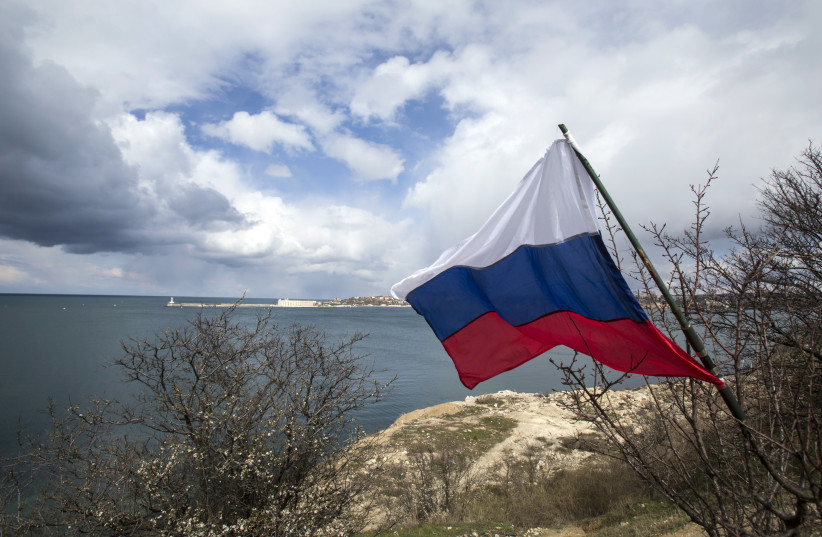Each day brings us new horrors from the front lines in Ukraine as Russia’s aggression intensifies, with the names of Bucha and Mariupol now seared into the memory of millions around the world. As a rabbi, I am naturally seized on the suffering and uncertain fate of Ukrainian Jews. But my concern extends to Ukrainians of all faiths who are scrambling to survive the indiscriminate onslaught.
One group that has not received the attention they deserve are the Crimean Tatars, a people whom I have engaged with on the interfaith level during my years of interfaith diplomacy with the Muslim world.
The Crimean Tatars, largely Muslims, trace their history in the Ukrainian peninsula back many centuries, most of which are marked indelibly by Russian oppression.
Russia first violated an international treaty to annex Crimea in 1783. But the Tatars’ misery grew in May 1944, when Josef Stalin had the Soviet Union deport Crimean Tatars from their homeland. They were forced to Central Asia in cattle cars, a campaign that resulted in the loss of 46% of their population to starvation, exhaustion and disease. Those who survived were often sent to Gulag camps.

Following the 2014 Russian annexation of Crimea, the Tatars were dispossessed of their lands once again, deprived of the ability to organize politically. Their assembly, or Mejlis, was banned and falsely labeled extremist. They have continued to suffer forcible disappearances and torture at the hands of Russian security services.
For evidence, see the Ukrainian submission to the UN International Court of Justice on Russian persecution of the Crimean Tatars, which filled 29 volumes and 17,500 pages. It makes clear their mistreatment has been one of a perverse economy of scale, and states that Russian forces recruited terrorists who carried out explosive attacks on civilians in Odesa, Kharkiv and Kyiv.
In the aftermath of the 2014 Russian invasion, my organization, the Foundation for Ethnic Understanding (FFEU), as part of its mission to foster closer Muslim-Jewish relations globally, sponsored a visit by leaders of the Crimean Tatar Mejlis to Washington.
We held discussions with US policymakers and Muslim and Jewish leaders to push back on Russian discrimination and misinformation. And we built fundraising infrastructure to provide critical relief supplies to the children of disappeared or jailed Crimean Tatar political prisoners.
THE TREATMENT of the Tatars foreshadowed the wider crimes of Russia in Ukraine. This month, President Joe Biden stated his belief that Russian forces are committing genocide in Ukraine and trying to wipe out the Ukrainian identity. This is not the first time.
Soviet collectivization policies in Ukraine created a famine known as the Holodomor in 1933 that killed 10 million Ukrainians. Fourteen countries have recognized the Holodomor as a genocide.
We should have seen this threat coming, given Russia’s extensive historical mistreatment of Ukrainians and Crimean Tatars. They have warned us for many years of the Russian threat, and too few listened.
Any Jew or Muslim in a minority context, even a world away, should feel some sense of kinship upon learning of the Tatar plight. As we use the time of Passover and Ramadan for reflection and empathy, we should focus on the injustices we see in the world and do all we can to correct them.
Russia’s attacks are unfolding on Ukrainian Jews and Muslims alike, and we must realize there is more that unites us than divides us, and that the fight of today is not between faiths. It is between good and evil.
I hope that Jews at the Seder recalled our own liberation from slavery in Egypt, but also prayed for the same outcome for Crimean Tatars and the larger Ukrainian population struggling to survive. I hope Muslims breaking their fast at iftar will reflect on the Ukrainians of all faiths for whom a lack of nourishment right now will not be an exercise in religious fasting.
And to the best of each of our abilities, we do more to sustain and save each and every unfortunate and innocent Ukrainian affected by this terrible and unnecessary conflict.
The writer is president of the Foundation for Ethnic Understanding and a noted adviser to many Gulf states. He is recognized as one of the most influential Jewish figures in the Muslim world.
